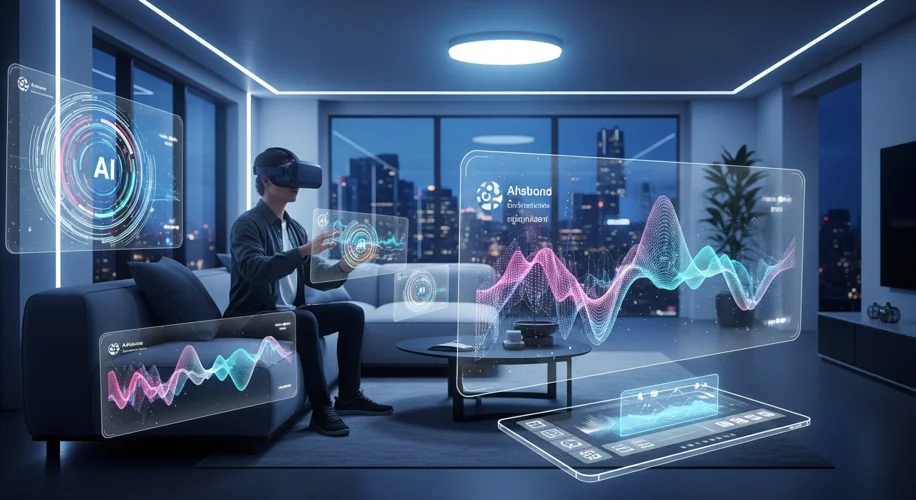Hey everyone, Mateo here!
So, let’s talk about the future, specifically the mind-blowing ways Artificial Intelligence (AI) is teaming up with Virtual Reality (VR) and Augmented Reality (AR). As someone who’s dipped their toes into the VR startup scene and is deep in the AI trenches for my PhD, I’ve seen firsthand how these two powerhouses are starting to really fuse.
Think about your current VR or AR experience. Now, imagine it being way smarter, more responsive, and genuinely personalized. That’s where AI comes in.
Making Virtual Worlds Smarter
AI is already enhancing VR by making virtual environments feel more alive. We’re talking about NPCs (non-player characters) in games that don’t just follow a script but actually learn from your playstyle and adapt their behavior. Imagine a virtual assistant in VR that can understand complex commands and anticipate your needs, or environments that dynamically change based on your emotional state detected through biometric feedback.
For AR, AI is the key to truly seamless integration with our real world. Object recognition is getting scarily good, meaning AR apps can identify items, provide instant information, or even overlay instructions that make sense in real-time. Picture trying to assemble furniture, and your AR glasses show you exactly which screw to use and where, guided by AI that understands the instructions and your progress.
AI-Powered Virtual Worlds
Beyond just enhancing existing experiences, AI is poised to help create entire virtual worlds. Procedural content generation, powered by AI, can create vast, detailed, and unique environments much faster than humans ever could. This means more variety in games, more immersive training simulations, and entirely new forms of digital art and entertainment.
I’m particularly excited about AI’s potential to generate realistic and dynamic characters. We’re moving beyond static avatars to virtual beings that can converse naturally, learn, and develop personalities. This could revolutionize social VR, online education, and even how we interact with customer service agents.
Gaming and Entertainment Get an Upgrade
For us gamers and entertainment lovers, this integration is huge. AI can personalize your gaming experience, offering dynamic difficulty adjustments, crafting unique quest lines, or even generating personalized soundtracks that match the mood. In VR entertainment, AI could create interactive narratives where your choices genuinely shape the outcome in complex ways, far beyond simple branching paths.
Imagine watching a live concert in VR, and an AI-powered system generates unique camera angles or visual effects tailored to your preferences in real-time. Or a personalized workout in VR where the AI coach adapts the routine based on your performance and feedback.
What’s Next?
We’re still in the early days, but the trajectory is clear. AI is set to make VR and AR experiences more intuitive, intelligent, and deeply personal. It’s not just about better graphics or smoother performance; it’s about creating digital realities that feel truly alive and responsive to us as individuals.
What are your thoughts on AI and VR/AR? What future applications excite you the most? Drop your comments below – I’m super curious to hear what you all think!

